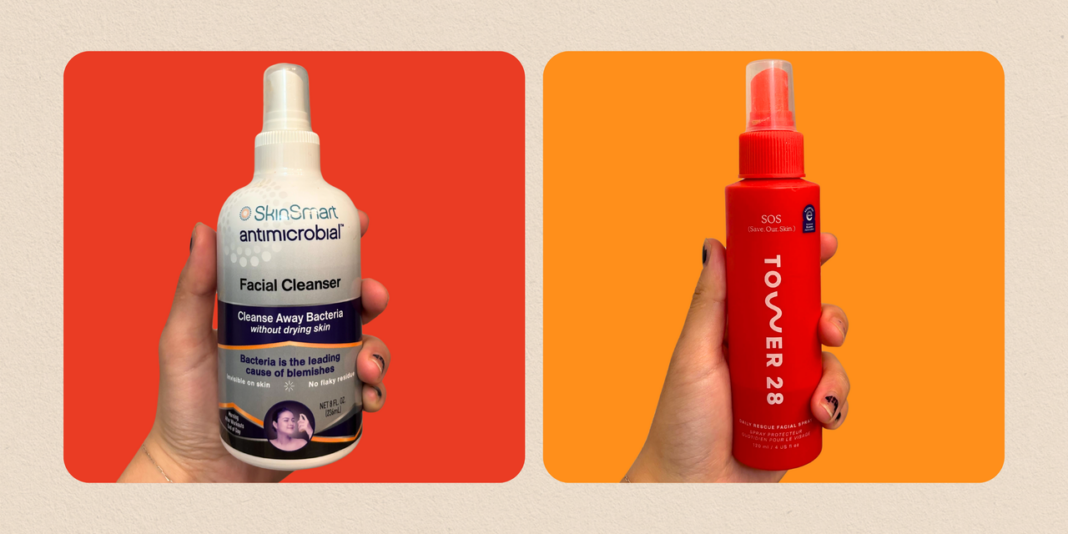No matter how much damage control I try to do for my acne-prone skin in the summer, my face still ends up becoming a sweaty, shiny, tomato-red mess within minutes of stepping outside. And sure enough, there’s always a new zit or two brewing shortly after.I’ve tried everything (including blotting papers to sop up oil and “redness relief” serums to calm my inflamed face) but nothing worked—until I bought a bottle of hypochlorous acid. According to a bunch of people on TikTok who relate to my seasonal struggles, this skin-saving ingredient is a master at banishing sweat-spawned pimples—and after two years of using it myself, I’m happy to confirm that it’s my secret weapon for keeping blemishes at bay.Just to make sure these impressive results aren’t all in my head, though, I asked two dermatologists if this stuff truly deserves my rave review. Here’s everything they told me about my skin care BFF.So, what is hypochlorous acid?Hypochlorous acid is an antibacterial (meaning it can kill bacteria, including the kind that causes acne) and antimicrobial (it destroys other pathogens like fungi and viruses) compound that’s found in a lot of household disinfectants, including bleach.But don’t let that scare you away: As a lifelong member of the sensitive-skin club, I would never recommend something you’d use on a grimy bathtub for your delicate face. When hypochlorous acid is properly diluted, it’s safe for pretty much anyone to try, Azadeh Shirazi, MD, a board-certified dermatologist in San Diego and the founder of skin care company AziMD, tells SELF.“Our white blood cells naturally produce hypochlorous acid [made of hydrogen, oxygen, and chlorine] as part of an immune response to fight off bacteria and viruses,” Dr. Shirazi explains. Skin care companies chemically replicate this natural compound by electrically charging a mixture of salt, water, and vinegar (a process called electrolysis), so it can be used topically. And research shows that this solution is gentle enough to use directly on your face to get rid of the little microorganisms responsible for your breakouts.(Plus, since hypochlorous acid already exists in your body, it’s less likely to cause irritation and allergic reactions compared to more potent acne treatments like benzoyl peroxide, Dr. Shirazi adds.)Here’s how hypochlorous acid can help prevent acne in the summer—and beyond.As I complained about above, when the heat and humidity ramp up, my skin feels bumpier than usual. That’s pretty common, research suggests, because high temperatures can trigger your body to produce more sebum (the skin’s natural oil)—which, in excess, can lead to breakouts. When sweat mixes with that extra oil, along with the dirt and dead skin cells already on your face, you’ve got the perfect storm for clogging pores and creating annoying blemishes, according to the American Academy of DermatologySo for those times when you’re a sticky, sweaty mess—and double-cleansing isn’t an option—Dr. Shirazi recommends spraying your face with hypochlorous acid. Not only will that little spritz feel cooling and refreshing, but this derm-favorite ingredient can also prevent and kill acne-causing bacteria, which thrive in warm, moist environments (like your hot, sticky face), she adds.
Hypochlorous Acid Spray Is the Only Thing That Keeps My Acne-Prone Skin Clear in the Summer
